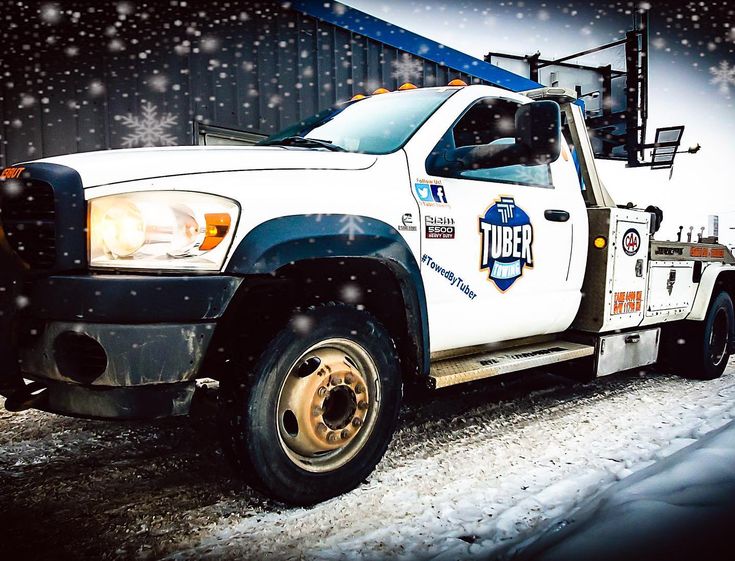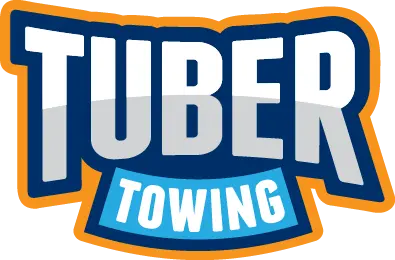Recreational Tow Misconceptions

Recreational tow misconceptions can lead to serious safety risks. Learn the truth behind the most common towing myths with expert towing safety tips from Tuber Towing. Whether you’re hauling a camper or a boat, knowing the facts keeps your trip smooth and stress-free. At Tuber Towing, we’ve seen it all — and we’re here to clear up the most common towing misconceptions that can put you and your vehicle at risk.
Let’s break down some of the top towing myths and the facts you need to know before you hit the road.
Misunderstood Towing Terms: Know the Lingo
Before we even dive into the misconceptions, it’s important to get familiar with some key towing terminology. Understanding these common terms can help you make smarter towing decisions:
-
GCWR – Gross Combination Weight Rating
This is the maximum total weight your vehicle and trailer can safely carry when combined. This includes the weight of the vehicle, trailer, cargo, passengers — everything. -
GVWR – Gross Vehicle Weight Rating
This is the maximum weight your towing vehicle is rated to carry, including cargo and passengers. Exceeding this weight can seriously affect your vehicle’s handling and braking. -
Curb Weight
This refers to the weight of your vehicle or trailer when it’s fully equipped with all standard gear, fluids, and a full tank of fuel — but no passengers or cargo. -
Tongue Weight
This is the downward force the trailer applies to the hitch of your vehicle. It usually represents 10-15% of the trailer’s total weight and must be correctly balanced for safe towing.
Myth #1: Upgrading the Hitch Means You Can Tow More
Fact: While upgrading your hitch may allow for a heavier-duty connection, it does not increase the actual towing capacity of your vehicle.
Your vehicle’s maximum towing capacity is determined by the manufacturer and based on a wide variety of factors including the engine, transmission, brakes, suspension, and frame strength. Installing a more robust hitch might help you tow more comfortably, but it doesn’t override the physical limits of your truck or SUV. Always respect your vehicle’s factory-rated towing limits.
Myth #2: It’s Fine to Guess the Tongue Weight
Fact: Estimating tongue weight without measuring it can lead to serious issues on the road.
Improper tongue weight — whether too heavy or too light — can cause trailer sway, loss of control, and dangerous instability. If too much weight is placed on the hitch, your front tires might lift slightly, affecting steering and braking. Too little, and the trailer might fishtail. To avoid this, use a tongue weight scale or a weight distribution hitch with a built-in gauge. The key is balanced loading across all axles — not guesswork.
Myth #3: Trailer Bearings Don’t Need Maintenance
Fact: Trailer bearings are critical and absolutely require regular maintenance.
Trailer wheel bearings allow the wheels to rotate freely while carrying the weight of the trailer. These bearings are subjected to friction, heat, and wear, especially during long trips or when towing heavy loads. If not properly maintained, they can seize up, potentially causing wheel detachment or even fire.
At Tuber Towing, we recommend inspecting, cleaning, and repacking your trailer bearings with fresh grease at least once a year, or every 12,000 miles — whichever comes first. If you hear grinding or feel resistance, it’s time for a check-up.
Myth #4: All Vehicles with a Hitch Can Tow the Same
Fact: Not all hitches or vehicles are created equal.
Just because your vehicle has a hitch doesn’t mean it’s ready to tow a trailer safely. Many passenger vehicles come with a basic hitch for bike racks or light cargo carriers, not for towing campers or boats. Always check your owner’s manual to confirm the exact towing specifications — and if in doubt, give Tuber Towing a call. We’ll help you sort it out.
Bonus Tip: Don’t Forget Tire Pressure and Brakes
Many people focus so much on hitch ratings and trailer weight that they forget two of the most essential safety items: tire pressure and braking systems. Both your vehicle and trailer tires must be inflated to the correct PSI for towing conditions. Underinflated tires can overheat, while overinflated tires may reduce grip and stability.
Also, ensure your trailer’s brake system is functional, especially for loads over 1,500 lbs. If your trailer doesn’t have its own brakes, your towing vehicle is doing all the stopping — which adds a major strain and increases your stopping distance.
Need Help? Call the Pros at Tuber Towing
We know towing can be confusing — but you don’t have to figure it out alone. Whether you need a rescue, some advice, or a quick safety check, Tuber Towing is your go-to expert in the Edmonton area. We’re available 24/7, rain or shine, to help keep you moving.
📞 Reach us anytime at 587-59-TUBER (587-598-8237)
Watch Tuber Towing in Action
Want to see how we handle real-world towing situations? Visit our YouTube channel TuberTaylor for behind-the-scenes footage, recovery tips, and towing breakdowns from our crew on the ground. It’s educational and entertaining — perfect for both weekend warriors and towing pros.
